Interview: Former Vixen Bassist Share Ross Is Ready to Rev It Up Again with JSRG
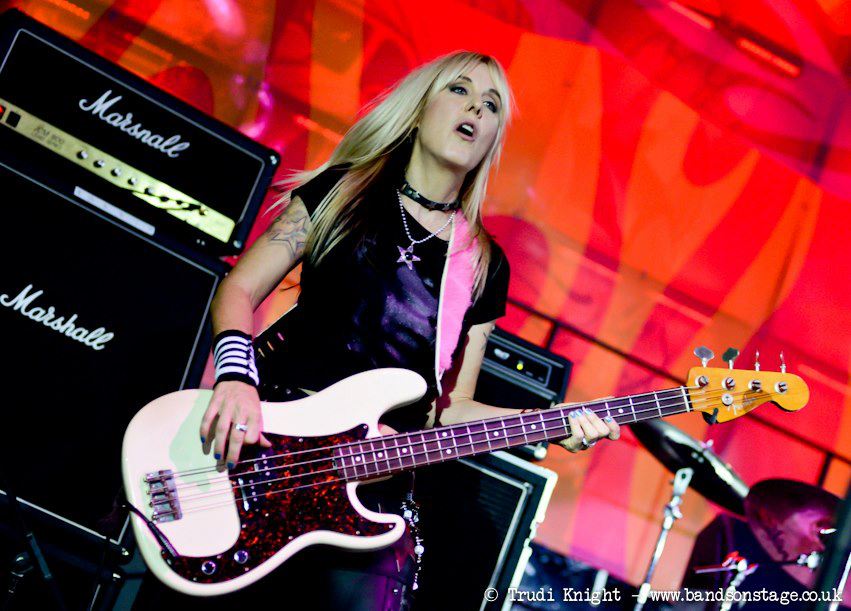
In a world where males seem to dominate most of the guitar spectrum, Share Ross continues to break down walls.
Whether it’s her bass prowess, songwriting skills or the fact that she's held her own alongside Michael Schenker and Tracii Guns, the beautiful blonde who once ruled the '80s as the bassist for Vixen is still proving she’s more than capable of running with the big boys.
Vixen disbanded for a short while in the early '90s, but aside from a one-off reunion for VH1, Ross hasn't performed with the band during its various lineup changes. Not one to rest on her laurels, however, she’s remained busy during her post-Vixen years. Ross was the bassist for Contraband (with Schenker and Guns) and has released three albums with her own band, Bubble (along with her husband, Bam).
She won the John Lennon Songwriting Contest in 2000 with the song "Sparkle Star." She's written a book on punk knitting and now somehow finds time to mentor and empower young women on how to become successful in the digital age. All this, and she's still one bad-ass rocker.
For fans desperate for a return to the “glory days," the wait is over. After a long hiatus, Ross is returning with JSRG, a band that includes three quarters of the classic Vixen lineup. JSRG (whose initials stand for each of the ladies' first names) features Ross (bass), Janet Gardner (vocals/guitar) and Roxy Petrucci (drums). Added to the mix is guitarist Gina Stile (also a member of Vixen from '97 to '98). Together, the ladies are once again ready to rev it up. It started last month with a journey on this year's Monsters of Rock Cruise.
I caught up with Ross and spoke to her about JSRG, Vixen and how she continues to forge her own path.
GUITAR WORLD: How long has this reunion been brewing?
All the latest guitar news, interviews, lessons, reviews, deals and more, direct to your inbox!
We've been talking about getting back together as Vixen for a while. I know some people think there are some big shenanigans going on, but the fact is we're all still friends with Jan (Kuehnemund, Vixen guitarist who holds the rights to the name). The timing just isn't right. So, we've decided to let go of the Vixen thing for now and reached out to Gina. Out of respect for Jan, we're not going to call it Vixen and instead calling it JSRG.
You played together on this year's Monsters of Rock Cruise.
That was our first big show. We'll also be doing this year's M3 Festival as well and are working on a few other dates here and there. There's also a little education that needs to be done regarding the name JSRG (Janet, Share, Roxy, Gina), but we'll take it as it comes and it will all sort itself out.
Has the band been writing new material?
There's been some writing that's going on. It's difficult to coordinate with everyone's schedule right now, but we're hoping to do more of that as the year goes on.
Is there a process you like to use when you write?
I don't personally have a set process. I never sit down and think, "OK, now I'm going to write a song.” Usually, there's something in my head popping around. Songwriting is very mysterious. I like to think of it as a river where I can go fishing. There's this vision I have of a river, and the river represents all of the creative ideas in the world. When I step into the river, I can catch an idea (kind of like fishing). I also believe that sometimes you’re able to "channel" the idea. For "Sparkle Star", the entire verse for that song just came into my head one day.
Tell me the story of how you joined Vixen.
The whole thing boils down to a bar napkin. I was performing as a "hired gun" session player with a band in LA. One night, we were playing in a club and Jan was there. She noticed me playing and came up to me after the show. She told me that she had this all-girl band called Vixen and that she'd love for me to come check them out sometime, so she wrote her phone number down on a napkin and handed it to me. At the time, I had no interest at all in being in an all-girl band. In fact, it was the furthest thing from my mind, but I shoved the napkin on the bottom of my purse anyway.
After a few months, I began to get tired of being a session player, so I started looking at ads in magazines and calling around about auditioning for bands. I'd start the conversation by saying, "I hear you're looking for a bass player." But the people I would talk on the other end were typically guys who would either laugh at me, or hang up on me or say "OK, so who's the bass player? You? A chick?" I got fed up with that real quick, and that's when I started wondering what was up with that all-girl band.
At that moment, it was like the universe just opened up a path. Because the next thing I know, I pick up another magazine and there was a review of Vixen playing at a local club. That's when I started looking for that bar napkin. I called up Jan and we chatted for a while and then she asked me if I had heard a rumor about the band. When I told her I hadn't, she said, "Well, we just fired our bass player ten minutes ago." I met with them and was blown away. I immediately decided that maybe I could be in an all-female band. [laughs]. They offered me the job and within a year we had our record deal.
What was the reason Vixen decided to take a break in the early '90s?
There were many reasons, but one of the big ones was that our manager had a big argument with the record label, which subsequently dropped him and all of the artists he managed. At the time we probably should have united together but instead, we all started arguing amongst ourselves (myself included). We were all to blame.
Were you always a bass player?
I actually started out on the piano. My mom was a musician and a piano teacher, and I was already playing piano when I was 4 and Beethoven by the time I was 7. At one time, I thought I was going to be a classical pianist. That was the direction I was heading toward.
What made you switch over to the bass?
I heard Led Zeppelin. [laughs]
You also studied at Berklee. What was that experience like?
It was cool because it was the first time I was surrounded by a lot of other musicians and realized that this was my "tribe." Growing up in a small town in Minnesota, I sometimes felt that I didn't fit in. At Berklee, I also learned so much about music that I never encountered before. That's where I discovered Jaco Pastorius, Miles Davis and John Coltrane. It really shaped me as a player and I developed a lot of chops.
What else are you involved in today?
I've gotten involved in public speaking because I want to connect with young people to inspire and empower them. In the course of doing that, I've also developed Video Rock Star University, a program where I coach female entrepreneurs on how to get comfortable and confident on camera. Social media is so huge these days and connecting through video (when done correctly) is much more powerful than the written word.
What are some of the best moments you can remember of your career so far?
I’ll never forget the very first night of our tour with Scorpions. It was our first big arena tour and our first tour of Europe. Just the fact of that whole experience was overwhelming. I remember we showed up at the arena for sound check, walked into our dressing rooms and discovered that the Scorpions had given each of us a bottle of champagne, a dozen roses and a note that said "Welcome to the big time!” It made us feel awesome that they believed in us.
Another turning point moment was with my band, Bubble. We had released our first CD and a promoter had taken us over to Japan. It was myself, Bam Ross and Brent Muscat and Eric Stacey (both from Faster Pussycat) who were in the band. That first night we were playing, we got to "Sparkle Star" and I had this habit of closing my eyes when I sang the beginning of it. So I get halfway through that and when I open my eyes, I see all of these Japanese girls out front crying and trying to mouth the words. We never had that kind of reaction before.
Were you ever intimidated at all by being a female in sort of a "male dominated" genre?
Not at all. I was always ready to lay it down. In fact, at the beginning of every Vixen tour, the members of the headlining band would always stand on the side of the stage just to see if we could really play. It was an ongoing thing that got to be kind of funny. We were always like, "Here we go again!” There was so much of showing people we had what it took that there was no time to be intimidated. It was always, "Who do we have to shoot down now or whose ass do we have to kick today?" But always with a nice high-heeled boot. It was the '80s, after all. [laughs]
For more info on JSRG, Check out their Facebook page.
James Wood is a writer, musician and self-proclaimed metalhead who maintains his own website, GoJimmyGo.net. His articles and interviews are written on a variety of topics with passion and humor. You can follow him on Twitter @JimEWood.
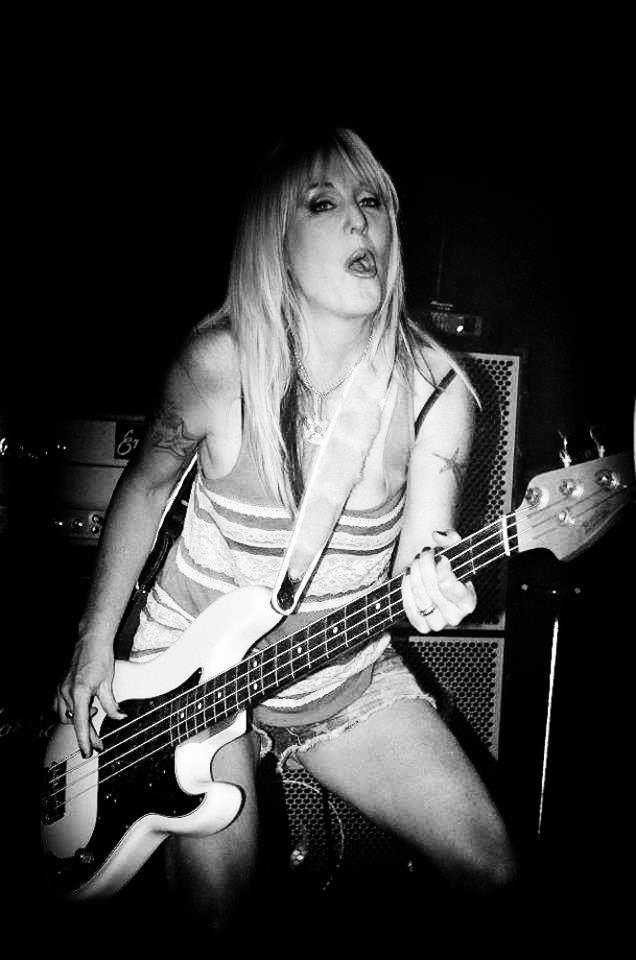

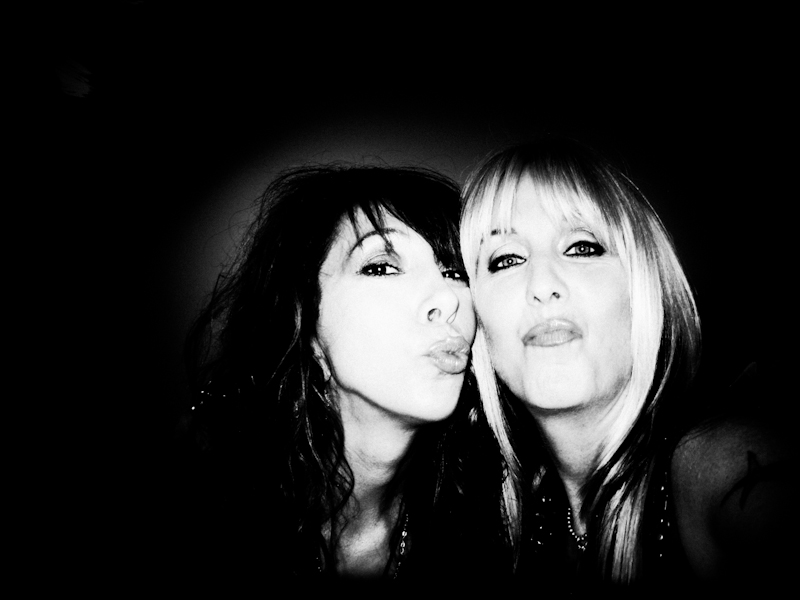
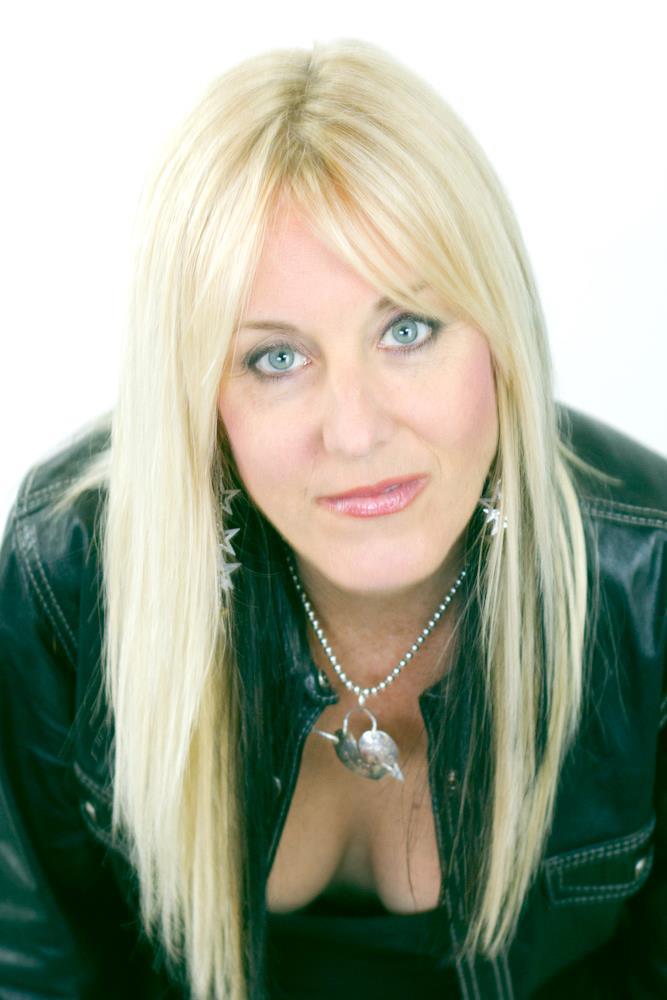
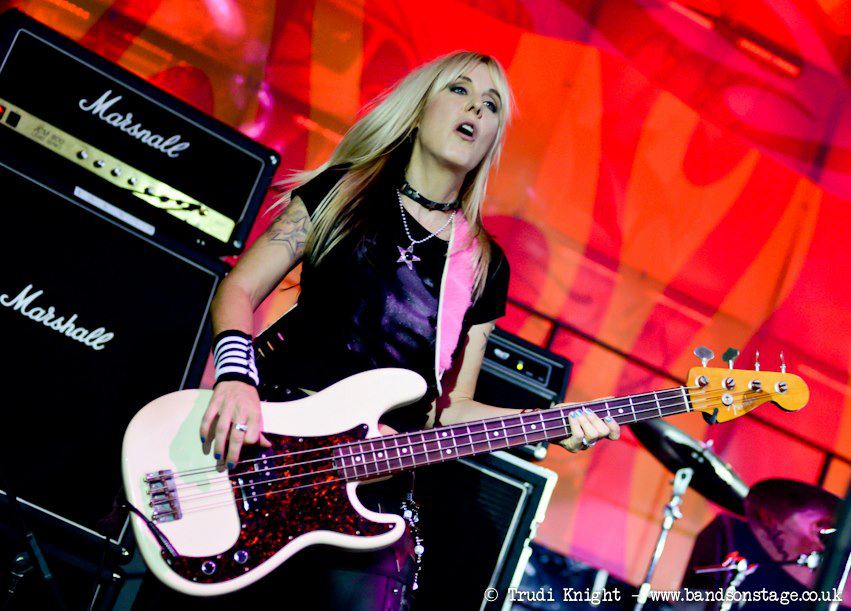
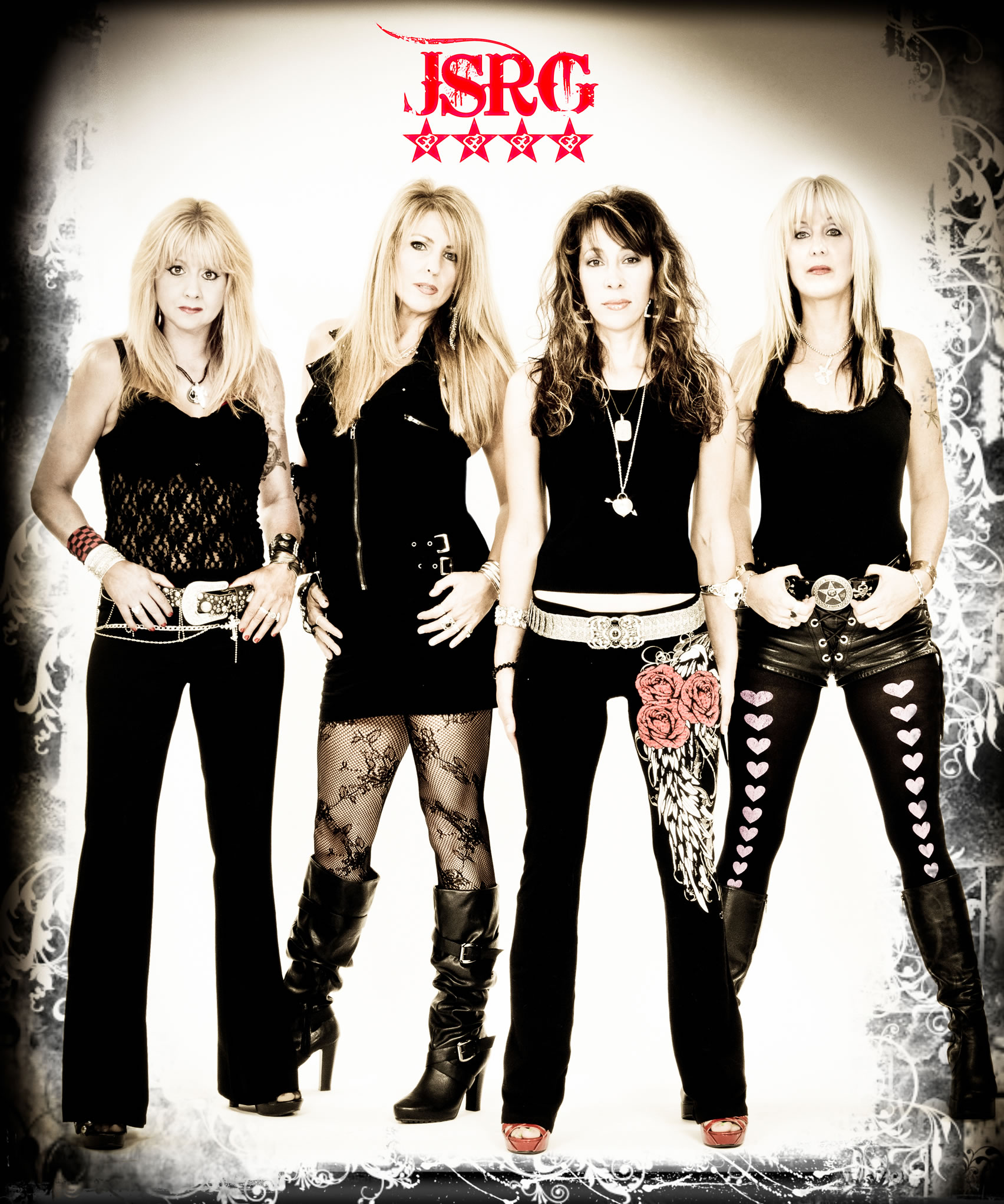
James is a guitarist and freelance writer who's interviewed some of the biggest names in music. He is the author of four books and his writing credits include work for Guitar World, AXS and Yahoo! as well as for his hometown newspaper where he writes on a variety of topics with both passion and humor. As a guitarist, he's performed everywhere from local bars and nightclubs to some of the biggest stages in front of thousands of music fans.
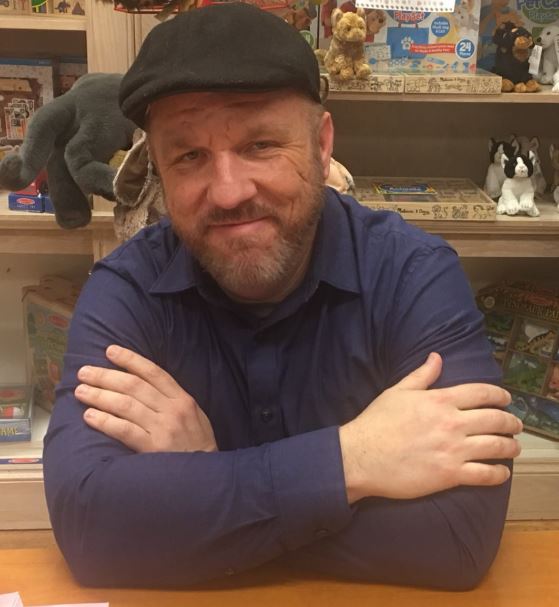
![B.B. King [left] cups his hands to his ear as he asks the crowd for more. Joe Bonamassa, with a Les Paul, gives his crowd a thumbs up](https://cdn.mos.cms.futurecdn.net/P3XrQLh86C27JfPp4AGp6n.jpg)